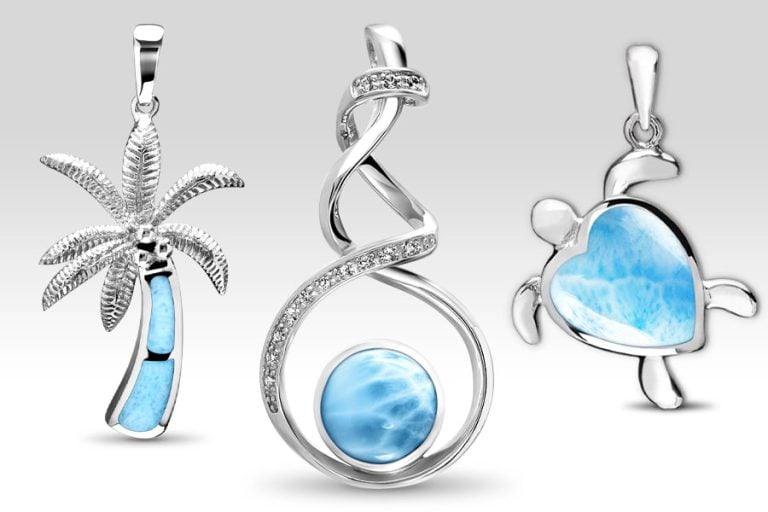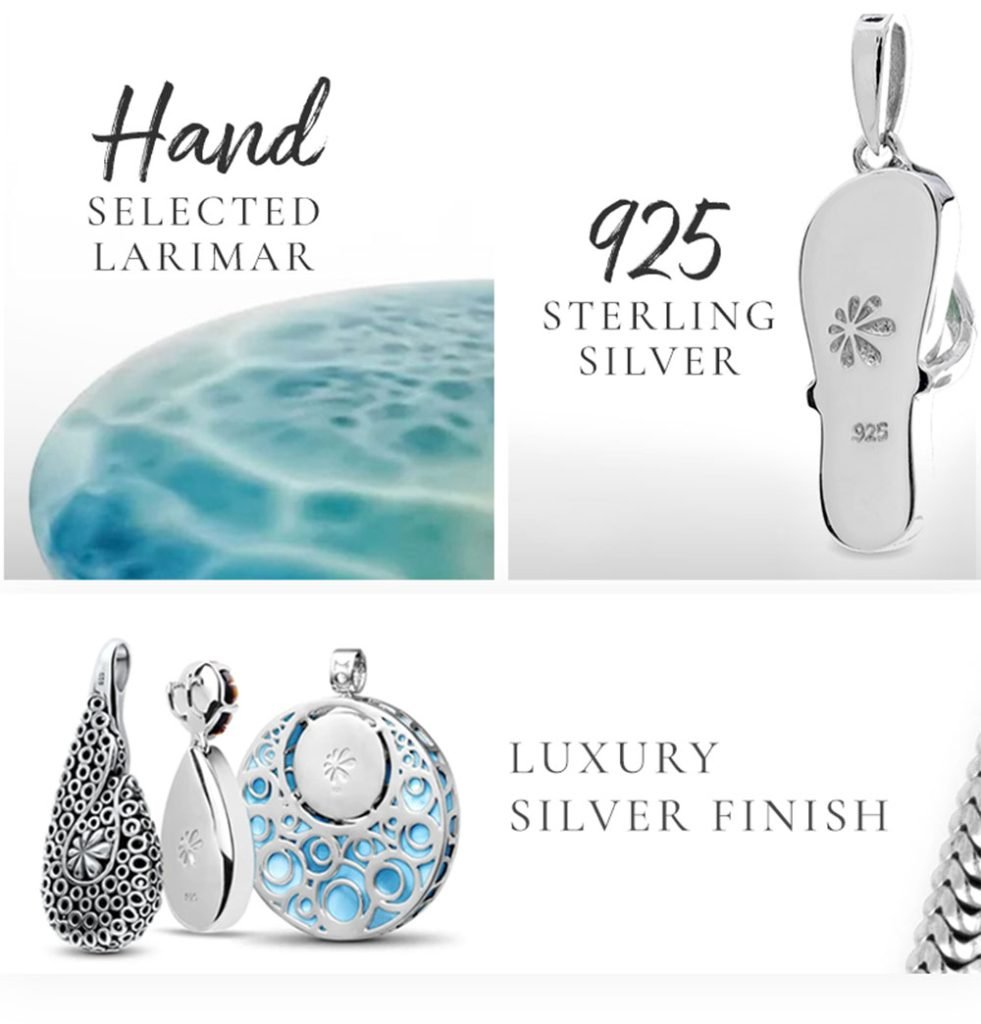What do you choose between ‘sterling silver’ and ‘925 silver’ when jewelry shopping? Is there any difference after all? This might come as a shocker, but there is no difference between 925 silver and sterling silver items.
Historical Value of Sterling Silver
From the dawn of time, silver has been a symbol of status and power. However, unlike other metals, pure silver couldn’t be extracted as easily. It was around 1500 b.Ch. when Egyptians found a solution to this problem.
Did you know? Nowadays, it’s considered that an astounding 1.4 million tons of silver have been extracted from Earth’s hidden corners, in comparison with only 173,000 tons of gold.
Is Pure Silver In Fact Pure?
Even though sterling silver and 925 silver can be used interchangeably, this is not the case with pure silver. Pure silver is a malleable and highly shiny metal, stirring human creativity and curiosity since ancient times.
For determining the silver’s purity, specific measurements are used through the ‘millesimal fineness scale’. In layman’s terms, pure silver is considered to be formed from 99.9% of silver, leaving only 0.1% of its composition to another metal, such as copper.
The Silver Trading Rule Fine silver (pure silver) is considered a fine investment because it doesn’t depreciate as dramatically as other types of goods or currencies. However, the rule for trading it is that it has to have a .999 purity hallmark.
What Is Sterling Silver Made Of?
Sterling silver and pure silver are two entirely different metals. Sterling silver came in as a solution to the fact that, in its raw form, pure silver is merely a liquid. This increases the difficulty of shaping it and using it in the jewelry industry. Also referred to as `925 silver`, sterling silver is a form of alloy made of 92.5% pure silver and 7.5% other metal, such as copper or nickel.
The three-number hallmark that you see on silverware or silver jewelry stands for the purity of silver found in such objects. But why add copper or nickel? The additional metals make the silver sturdier and more durable.
Is Pure Silver Better Than 925 Silver?
To put it shortly, no.
Sterling silver has been made to complement the usage of pure silver. 925 silver is a highly qualitative and customizable type of silver, which doesn’t need as much polishing as fine silver.
925 silver is a top preference when it comes to gemstones and crystal jewelry since the stones are set directly into it, underlining a lavish and elegant look. Here are the top 4 benefits of choosing sterling silver for your jewelry:
1. Durable
Due to its increased resistance, sterling silver jewelry can easily become a family heirloom. Sterling silver tableware also has a high degree of resistance in time, making it well worth your investment.
2. Hypoallergenic
For the majority of the time, sterling silver jewelry can be worn daily without causing any skin allergies, thanks to its low percentage of copper or nickel. The lower the percentage of silver, the higher the chances you will end up with a rash. If you know you are highly susceptible to nickel allergies, then you might want to look for other hypoallergenic metals for your jewelry, such as platinum.
3. Affordable
Sterling silver is less costly than pure silver, due to its lower quantity of fine silver, making it a sound investment.
4. Versatile and customizable
Perfect for any group age, 925 silver jewelry is a thoughtful and timeless gift. The silver shade is well adaptable to any season, color palette, and skin tone. You can even become a collector from an early age and expand your sterling silver jewelry collection throughout your life.
Is Silver Plated Another Name For Sterling Silver?
No, it’s not!
Silver-plated jewelry doesn’t have a core of silver. Hence, the quality and overall value are highly diminished. Silver plated jewelry has a thin layer of silver on the surface, making it more susceptible to scratches, tears, and tarnishing.
Also, the silver-plated option is causing a lot more allergies, while 925 silver is known to cause little to no irritations.
How To Identify Sterling Silver?
1. The Stamp
Looking for the hallmark or stamp engraved in the silver jewelry is paramount. The most commonly used stamps in Europe and the United States of America are:
- ‘925’
- ‘S925’
- ‘.925’
- ‘sterling’ or ‘sterling silver’.
In comparison, in the United Kingdom, a lion’s head is depicted on jewelry, which is the equivalent of the 925 global stamps. However, depending on the provenance of the piece, there is a different purity standard. For instance, France uses a 95% purity standard for their sterling silver jewelry and objects. In Germany, the fine silver content is only 80%.
2. The Magnet
Silver and copper aren’t magnetic, so if your magnet sticks to the jewelry, take your money and leave!
3. The Sound
Another easy way to find the truth is the sound test. When you strike sterling silver, the sound it makes is high-toned and clear, engulfing the room in a true silver enrichment.
Does 925 Silver Tarnish?
Finding the perfect silver ring can become a mission. Once you’ve found it, you probably don’t want to take it off, right?
However, what do you do when your fingers turn green? Does 925 sterling silver turn green over time? Was the sterling silver not real? The good news is: The sterling silver was real. The bad news is: If not taken care of properly, sterling silver can tarnish.
The Case of Green Skin
Even though sterling silver is more durable thanks to its copper component, this can leave green, black, or dark brown shades on your skin. Copper and nickel tarnish easily in contact with the gasses found in the air, especially when exposed to humid conditions. This is why 925 silver jewelry gain an aged patina in time, which diminishes their shine and prestige.
Did you know? The creams and oils you use and even the amount of sweat you produce can be the reason why people’s skin reacts differently to copper, making their skin turn green.
How To Avoid Tarnishing Sterling Silver Jewelry?
- Use airtight containers – the easiest and best hack to avoid tarnishing your 925-silver jewelry is to store them in dark and dry spaces.
- Place a piece of chalk or a silica pack into the containers. It will absorb moisture and reduce humidity levels.
- Even though you can wash your hands or hop in the shower with your silver jewelry on, make sure you don’t swim into a pool with them. The chlorine levels are harsh on silver and can change its color.
- Avoid exposure to chemicals, such as house cleaning products or toothpaste.
- A gentle hand is required when cleaning and polishing sterling silver. It’s best to use lukewarm water and remember to dry out your jewelry with a soft or, even better, anti-tarnish cloth.
- Avoid circular motions when polishing your silver jewelry. Instead, use vertical strokes that will be gentler on the outer layers of your silver item.
The Silver Lining
Now you know – sterling silver or 925 silver is the better alternative for your jewelry. It lasts longer, it hardly gets tarnished and it’s always in style! Remember to purchase your jewelry from respectable vendors and apply the 925 silver tests whenever you can. If cared for correctly, sterling silver becomes the core of qualitative pieces, which can be passed down through generations, making us appreciate it even more.




